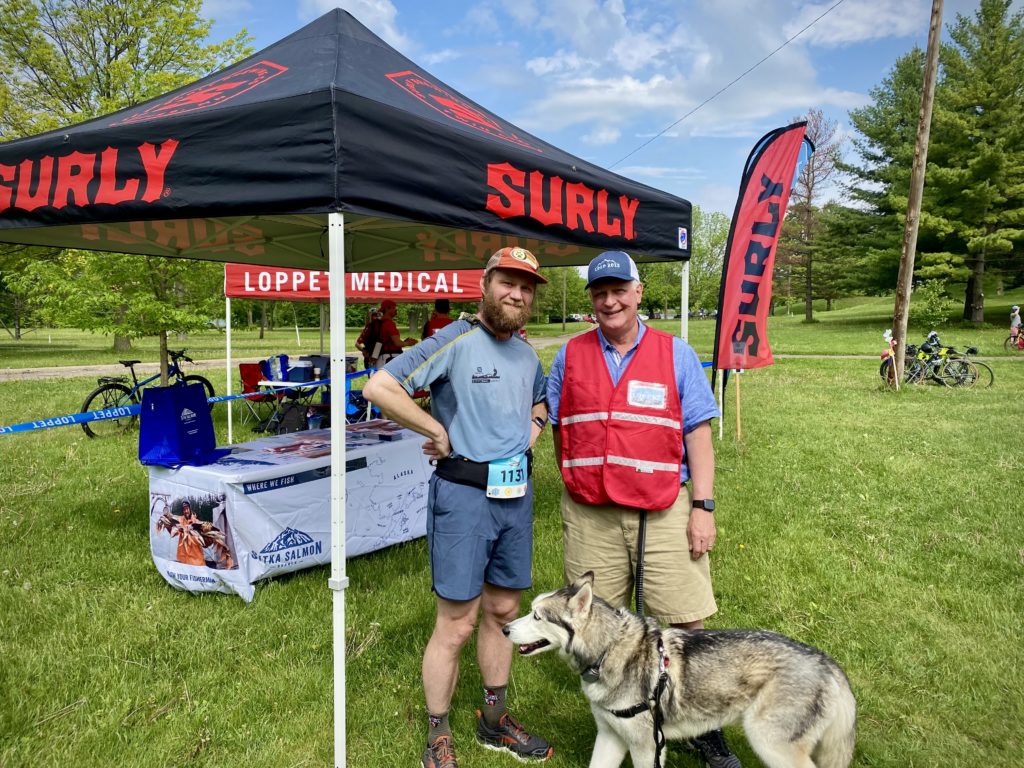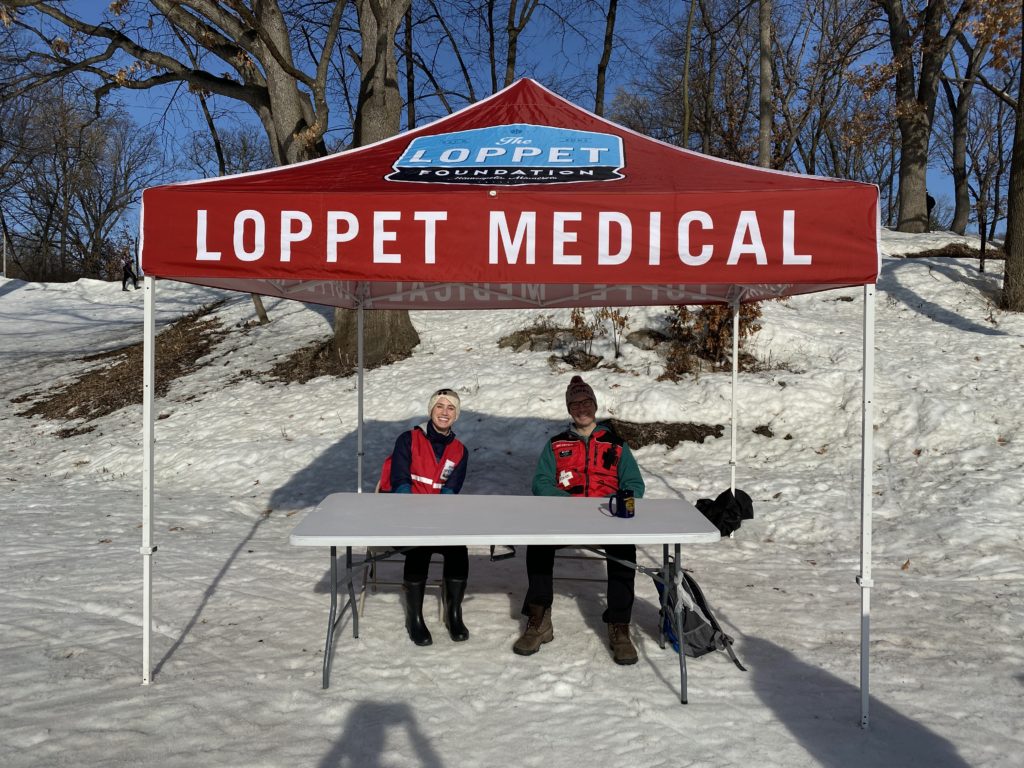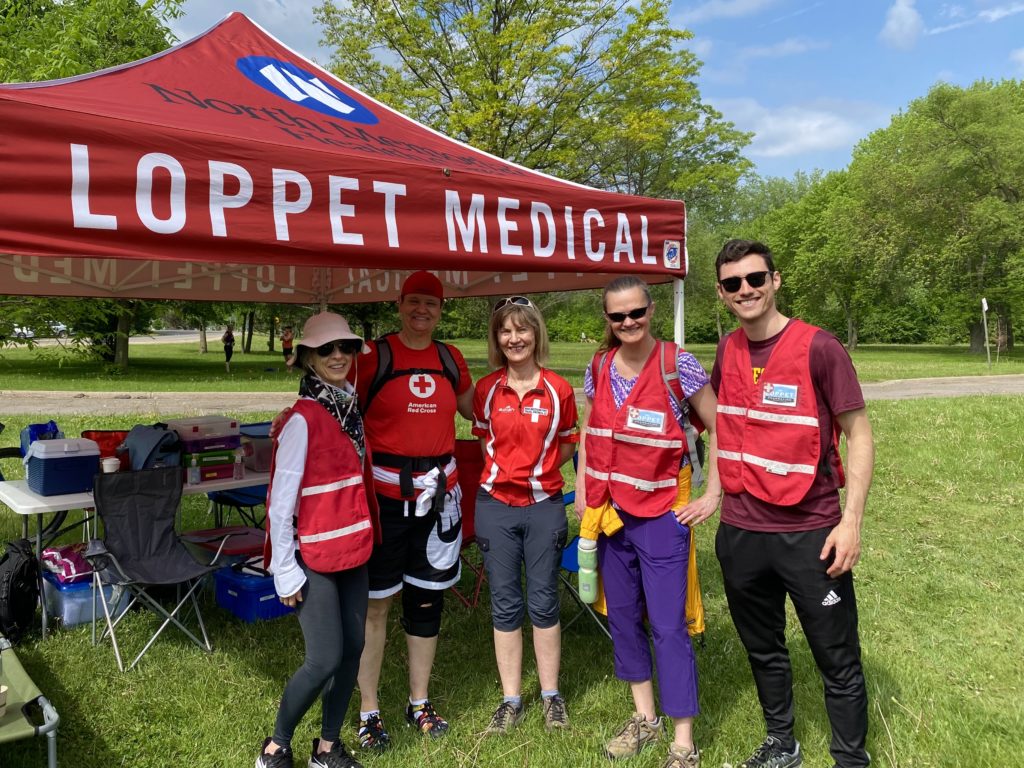News & Stories
Behind the Medical Tent with Mark Bixby

Mark has attended every Loppet race since they began, but never as a skier. One of the Loppet’s original board members and long time trusted medical director, he has been one of the integral forces working to keep the Loppet community healthy since the organization’s start. Serving on the board of directors from 2004 through 2017, Mark has also employed his background in family and wilderness medicine to coordinate qualified medical teams for Loppet events for almost 20 years.
Where it began
“I was a family doctor in a town of 1,200 people for 10 years at the start of my career. After returning to the University and becoming a full time faculty member, my career moved from full time clinical to more administrative roles over the years. From 1991 through 2014, I worked in North Minneapolis – most of that time with the University of Minnesota Residency Program that is based in North Memorial. That’s where I met the Mungers and got to know their passion for the outdoors and for caring for underserved communities with the Loppet Foundation.”

Inside the Medical Tent
The medical teams at the Loppet are there to provide onsite care and assessment for participants, spectators, staff, and volunteers who might suffer injury or illness at an event. The teams are made up of physicians, nurses, EMTs, paramedics, ski and bike patrollers, physical therapists, and chiropractors, who work together to assess and triage illness and injury. They also collaborate with the local medical services and refer patients to physicians, urgent cares, and emergency departments when necessary.
“For the big races, we have a larger number of people that are positioned around the course – often at the aid stations in point to point races. For the shorter races we always have a tent at the start/finish, and a lot of times will have medical team members on course, particularly in areas like downhills or bridge crossings – places where people might be more likely to get into trouble.
The most common things we’ve seen over the years are the skin things – blisters, scrapes, cuts, road rash, or tree rash when people run into them! Sprains, strains, and several fractures of collarbones and forearms. We’ve seen bee stings – particularly in the fall at the Trail loppet. We’ve seen some emergencies. Not only do we provide care to the participants and spectators, but we also care for the other volunteers.
Over the years, we’ve done a lot of outreach to various organizations – North Memorial, Allina Health, Park Nicollet, Health Partners, etc., and we’ve gathered a big list of people who have expressed interest or have volunteered at events over the years.
When it comes to recruiting volunteers, I’ll send out an email to a large group of people, and see who can volunteer. We place people where they will be of most value and put together teams.”
Why the Loppet?
“This is a branch of wilderness medicine that I’ve been interested in throughout my career. When I was in college and the first part of medical school, I was a staff member for the YMCA camp in Ely, Minnesota which sends canoeing and backpacking trips out all over the country and most years into Canada. The kind of care that we provide for participants, spectators, and staff of the Loppet is also a part of that wilderness medicine – how you can hopefully prevent illness and injury, and when that isn’t possible, to recognize it early and take care of it in an efficient fashion. People who are out camping may be hours if not days away from help, and people participating in Loppet events could be an hour or more away from definite help for illness or injury – it’s that kind of thinking that I’ve learned over the years working in wilderness environments that guides my thinking and planning to care for people at Loppet events.”
Loppet Relationships
Not only has Mark provided the Loppet with organization and expertise at events, but he has also been a trusted face and voice of reason navigating programming and events throughout the pandemic year.
“Having a good trusting relationship with the Loppet staff and meeting with them to help grapple with this whole unprecedented covid pandemic that came upon us has been quite rewarding. Even just working with staff to make sure that the ski or bike cross courses maintains skiers’ safety while allowing the risk that needs to be there in order for the event to actually be the fun challenging event that it’s supposed to be. It’s that tightrope – you can’t eliminate all risk, that’s impossible, but how can you manage risk when you’re doing these dangerous things. And that’s been really fun to work with Loppet staff over the years to really address those issues.
It’s been wonderful to see the Loppet grow. I think the thing that has caught me most about the Loppet is it’s commitment to getting kids and adults who might not otherwise engage in all of the activities, and seeing a large percentage of those people find that things they’ve never done before are actually a whole lot of fun. You get these kids that learn to ski at one of the school programs through the Loppet and go on to be great competitors at the high school level and beyond. That has been very gratifying to see. To work with these communities to give them an experience that they may otherwise never get.”
Mark, thank you for your work in keeping the community safe and healthy, and we wish you the best in your retirement!
